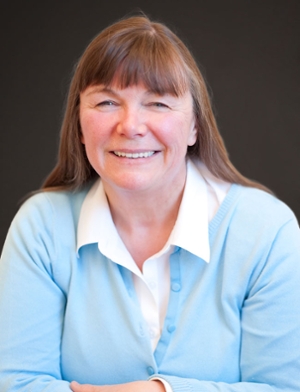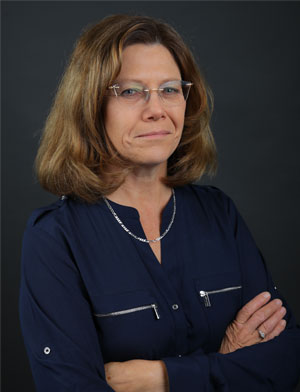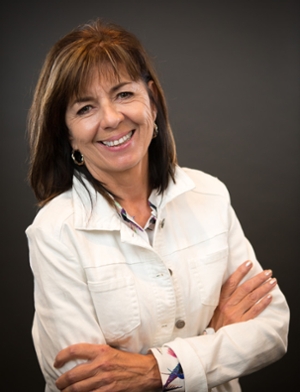Faculty Receive U of S Community Engaged Scholarship Funding
The University of Saskatchewan Office of Community Engagement and Outreach provides up to five Community Engaged Scholarship Research Seed Funding grants annually to faculty whose research deals with a topic that not only advances knowledge within a particular field, but is meaningful to a community partner. The grant encourages collaboration between researchers and is designed to lead to larger grant-funded projects. The Office of Community Engagement and Outreach also provides up to four Support for Community-Engaged Experiential Learning grants annually to faculty who work with community partners on experiential learning opportunities for students. The College of Nursing is proud to announce, three recipients of the 2014 U of S Community Engaged Scholarship funding are Primary Investigators from the College of Nursing.
Dr. Angela Bowen

Project: Postpartum Depression: Recent Immigrant Mothers’ Perspectives
Grant: $6,000; Community Engaged Scholarship Research Seed Funding
Team: Dr. Angela Bowen (Principal Investigator), Dr. Cheryl Waldner (Western College of Veterinary Medicine) and Kamalpreet Banga (PhD student)
The number of immigrants calling Saskatchewan home has increased significantly in recent years. The majority of these immigrants are arriving from Asia and the Middle East, whereas traditional immigration typically occurred from the United States and United Kingdom. Although there is knowledge regarding immigrant health, specifically immigrant mothers, little is known about the experiences, perceptions and process of integration into Saskatchewan, where social support systems and health care services are not matured to provide culturally appropriate services to these new groups of immigrants. This research is part of a larger project to help create community care giver knowledge about the mental health needs of recent immigrant postpartum mothers.
“Our community partner is the Saskatoon Open Door Society (SODS), which assists recent immigrants with health, information and other required services,” said College of Nursing Associate Professor Dr. Angela Bowen. “SODS has noticed immigrant mothers face a considerable challenge when it comes to the health care system in Saskatchewan. Language barriers make it difficult for them to communicate freely about their health and there has been very little research to describe the expectations and needs of these immigrant mothers. Our goal is to develop an understanding of the needs and challenges of recent South Asian & Middle Eastern immigrant mothers during the postpartum period and to understand how they cope with postpartum depression, in an effort to improve immigrant services in Saskatoon.”
Dr. Marie Dietrich-Leurer

Project: Street Culture Kidz Youth Engagement Project
Grant: $3,000; Support for Community-Engaged Experiential Learning
College of Nursing Team: Dr. Marie Dietrich-Leurer (Principal Investigator), Carleen Desautels, Heather Cote-Soop, Dr. Pammala Petrucka, Dr. Diane Campbell
The College of Nursing - Street Culture Kidz Youth Engagement project will give College of Nursing students from the Regina Campus the opportunity to provide programming for marginalized and/or street-involved youth. The community partner for this project, Street Culture Kidz, is a non-profit, charitable organization that provides support and mentorship to under-serviced youth in Regina, through social entrepreneurialism and providing positive adult role models. During clinical placements, nursing students will provide interactive educational/ recreational sessions for youth in the Street Culture Kidz program. Sessions will be held for two to three hours, one night per week for 10 weeks. Participation in programs at Street Culture Kidz is on a voluntary, drop-in basis.
College of Nursing Assistant Professor Dr. Marie Dietrich-Leurer describes the program. “This project will provide a unique opportunity for College of Nursing students to work as partners with a community organization, as they deliver a program aimed at engaging street-involved and/or marginalized youth, in order to promote skill development and general health and well-being. Each session will start with nursing students and youth participants preparing a healthy meal. This provides an incentive for the youth to attend the session, acts as an icebreaker to build rapport and provides an opportunity for informal teaching on nutrition and the development of cooking skills. Following the meal, nursing students will facilitate recreational and/or interactive educational activities with the content of each session based on feedback and ideas received from the youth during an earlier session.”
CEO of Street Culture Project Inc., Kim Sutherland, fully supports this project. “What is really exciting is the concept of hands-on mentoring - where nurses work alongside the youth to create and serve a meal before the evening's event. This is exceptional and critical in our efforts around 'normalizing' a street youth's experience in government based housing services."
Dietrich-Leurer looks forward to the results of this project. “The input from the youth, in addition to providing guidance on the contents of future sessions, gives us an opportunity to investigate the preferences of street-involved youth for research purposes.”
Dr. Lee Murray

Project: Creating Safe Environments for Adolescents with Developmental Disabilities: Community Partnerships for Collaborative Practice and Student Learning
Grant: $3,000; Support for Community-Engaged Experiential Learning
Dr. Lee Murray (Principal Investigator)
Dr. Lee Murray, Associate Professor in the College of Nursing, with community partners Canadian Red Cross RespectED, Greater Saskatoon Catholic Schools(GSCS) and Saskatoon Sexual Abuse and Information Center has created a safe environments and healthy relationships program for adolescents with developmental disabilities attending GSC High Schools. “The program has been developed over 10 years and provides students with educational resources, such as the promotion of emotional health, healthy sexuality education, knowledge regarding personal rights and responsibilities in relation to safe environments, body ownership, establishment of personal boundaries and knowledge prevention and skills in order to stay safe,” said Murray. “We teach the students healthy peer relationships focusing on assertive communication, expression of personal feelings, sensitivity to others feelings and attitudes and provide knowledge about where to get help.”
This project also provides education, awareness, tools and supports to parents and teachers, enabling them to further educate and support the adolescents regarding healthy relationships and healthy sexuality. Parents and teachers learn about the myths and misconceptions surrounding sexuality among adolescents with developmental disabilities and develop the skills to promote healthy sexuality, prevent abuse and work with adolescents to develop risk-management strategies. Murray is excited about the proposed peer-to-peer aspect of this program and says, “This project will provide a model to train and educate high school and university students to deliver the program to youth with developmental disabilities. Approximately 3-4 high school students from each of the five GSC high schools in Saskatoon and 8-10 university students from a variety of colleges at the U of S will receive the training and education to deliver this program.”

